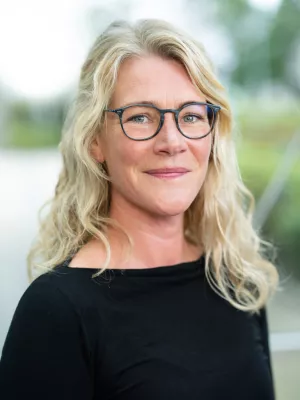
Ida Wingren
Doktorand och forskare

Breaking out of the neoliberal market agenda? Developing expertise to support local coastal community-based fisheries in Sweden
Författare
Summary, in English
Ida Wingren
Milena Arias Schreiber
Sebastian Linke
Breaking out of the neoliberal market agenda? Developing expertise to support local coastal community-based fisheries in Sweden
Fisheries management lays bare many of the tensions and contradictions between community wellbeing and livelihoods on one hand and impositions of neoliberal market approaches to sustainability on the other. This causes problems for policy-making that tries to adhere to more holistic sustainability approaches, including social besides environmental and economic aspects, as e.g. under so-called ecosystem based fisheries management approaches.
We will highlight such tensions and contradictions with a case study on a community supported fishery in Simrishamn on the Swedish east coast. Simrishamn is one of a few remaining alive fishing communities on the Baltic coast of Sweden harboring a diversity of fishing segments including small-scale fishers. Over the last decade it has become an important place for addressing, supporting and developing community-based fisheries approaches in Sweden, as opposed to the dominant national or EU top-down management that is steered by marketization and privatization attempts. The activities are lead by the municipality of Simrishamn (http://www.simrishamn.se/sv/marint-centrum/Fokusomraden/Fiske). The initiative connects regional managers, politicians, policy-makers, scientists, local fishers and fisheries representatives from the area as well as from other parts of the country. Our study focuses on these initiatives and networks organized through the Marine Center in Simrishamn. In particular we are exploring the role of expertise that these actors need and the challenges they face when evaluating progress and presenting and planning future developments. Conceptually, we will link our empirical investigations to theoretical perspectives about “diverse economies” as discussed by Kevin St. Martin and other scholars (St.Martin 2005; Roelvink et al. 2015). In doing so, we try to reveal some conditions for economic processes and practices that focus on social and community aspects for more holistic sustainability approaches. In such approaches, alternative economic practices might be developed that foreground the needs of communities and environments, rather than the two being shaped to meet the needs of dominant neoliberal market economies.
References:
St.Martin, K. 2005. Mapping economic diversity in the First World: the case of fisheries. Environment and Planning A 37, 959-79.
Roelvink, G., K. St.Martin, and J.K. Gibson-Graham. 2015. (eds.), Making Other Worlds Possible: Performing Diverse Economies. University of Minnesota Press.
Avdelning/ar
- Institutionen för tjänstevetenskap
Publiceringsår
2018
Språk
Engelska
Dokumenttyp
Konferensbidrag: abstract
Ämne
- Economic Geography
Conference name
Second Biennial Conference of the Political Ecology Network (POLLEN)
Conference date
2018-06-20 - 2018-06-22
Conference place
Oslo, Norway
Status
Inpress

